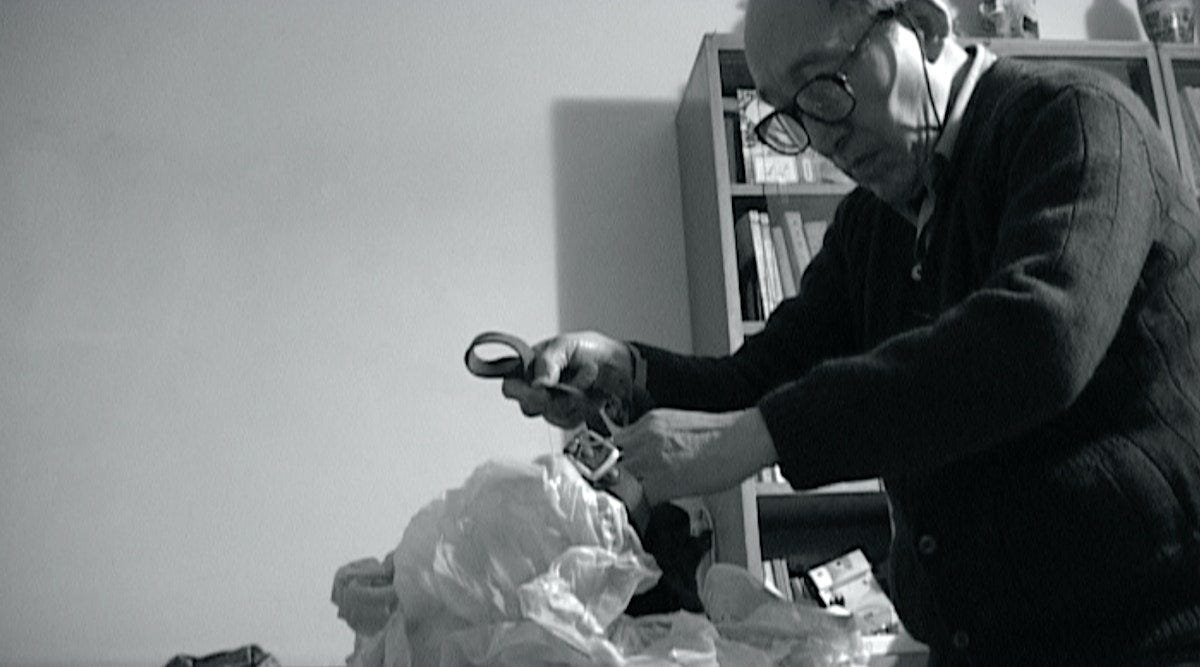《我虽死去》电影放映会|Though I Am Gone — A Film Screening
在蓝书屋汉诺威图书馆,胡杰纪录片《我虽死去》放映。Screening of a film by Hu Jie at Blaues Haus Hannover.
(English version below)
1966年5月16日,在中国大陆,毛泽东发起“无产阶级文化大革命”运动。在其亲自指挥下,由高校大学生和中学生组成的红卫兵团体开始造反,向各级党政机关夺权。当年8月,红卫兵开始上街“破四旧”,红色暴力越演越烈。根据官方统计,仅北京地区一个月内,就有1774人被殴打致死。当年8月所发生的极端屠杀事件,被后世称为“红八月”。
1966年8月5日,北京师大女附中的副校长卞仲耘被红卫兵打死,是此“红八月”中被打死的第一人。而该年8月18日,毛泽东在天安门城楼上接见红卫兵代表宋彬彬,也更加助推了红色暴力走向高潮。
据《南方周末》2014年报道,卞仲耘的丈夫王晶垚用一部照相机,给妻子遗体拍摄了多张照片,也拍摄了许多红卫兵学生上门、家门口的标语和大字报,等等,留下了在当时极为罕见的当事人记录。
纪录片导演胡杰以王晶垚先生拍摄的亡妻遗照为主要线索,采访了当时的部分目击者。通过照片和采访,影片呈现出1966年极端历史时刻中,卞仲耘之死的具体情形,以及当事人的思考。该片于2008年获香港首届“华语纪录片节”长篇组冠军,2012年于墨尔本国际电影节上展映。
本片片名引自前苏联作家帕斯捷尔纳克《日瓦戈医生》尾声诗篇:
我虽死去
但三日之后就要复活
仿佛那水流急湍
也像那络绎的商队不断
世世代代将走出黑暗
承受我的审判
2025年6月21日,在汉诺威蓝书屋图书馆,我们将举办胡杰的纪录片《我虽死去》的公开放映,邀请社会公众前来观看。活动免费,需在Eventbrite上报名,报名链接在这里。
活动时间和地址信息
日期:2025年6月21日
时间:15:00-17:00
地点:蓝书屋图书馆
Blaues Haus Bibliothek, Maschstr. 7, 30169 Hannover
《我虽死去》电影信息
导演:胡杰
年份:2006年
片长:68分钟
语言:普通话(配英文字幕)
国家:中国
类型:纪录片
胡杰简介
胡杰,生于1958年,中国著名独立纪录片导演,他持续发掘、记录和拍摄当代中国被埋葬的历史。他的纪录片作品包括《我虽死去》、《寻找林昭的灵魂》和《星火》等。
On May 16, 1966, Mao Zedong launched the Great Proletarian Cultural Revolution(无产阶级文化大革命) in mainland China. Under Mao’s direct command, high school and university students formed Red Guard groups(红卫兵), rebelled and seized power from local communist party and government institutions. In August of that year, the Red Guards took to the streets to destroy the Four Olds(破四旧). Following that, the red violence escalated rapidly. According to official statistics, 1,774 people were beaten to death in Beijing alone within one month. The killing wave that took place that August would later be remembered as Red August (红八月).
On August 5, 1966, Bian Zhongyun(卞仲耘), vice principal of the Girls’ middle School affiliated with Beijing Normal University(北师大女附中), was beaten to death by Red Guards, becoming the first person killed during Red August. Just days later, on August 18, Mao Zedong famously received Red Guard leader Song Binbin(宋彬彬) at Tiananmen Square, a symbolic moment that further inflamed the movement’s violence.
According to a 2014 Southern Weekly report(南方周末), Bian Zhongyun’s husband, Wang Jingyao(王晶垚), documented his wife’s death using a camera—capturing rare images of her body as well as photos of Red Guard slogans and big-character posters(大字报) posted on their home. These photographs remain among the very few firsthand records of that time.
In the documentary Though I Am Gone, Hu Jie uses Wang’s photographs as the central thread, and interviews surviving eyewitnesses to reconstruct the final moments of Bian Zhongyun’s life and the historical context.
The film won the Best Feature Documentary at the 2008 Chinese Documentary Festival in Hong Kong and was screened at the 2012 Melbourne International Film Festival.
The title of the documentary is taken from a poem written by Boris Pasternak, in the epilogue of his novel Doctor Zhivago:
Though I am gone,
I shall return on the third day.
As rafts floating down a river,
As a convoy of barges, the centuries
Will float to me for judgment,
Out of the dark.
Free admission. Please register via Eventbrite. Registration link is here.
Screening Information
Date: June 21, 2025
Time: 15:00–17:00
Location:
Blaues Haus Bibliothek
Maschstr. 7, 30169 Hannover
Film Information
Title: Though I Am Gone
Director: Hu Jie
Year: 2006
Runtime: 68 minutes
Language: Mandarin Chinese (with English subtitles)
Country: China
Genre: Documentary
About the Director
Hu Jie, born in 1958, is one of China’s most prominent independent documentary filmmakers. He is known for his courageous efforts to excavate and record the buried histories of modern China. His major works include Though I Am Gone, Searching for Lin Zhao’s Soul, and Spark.







